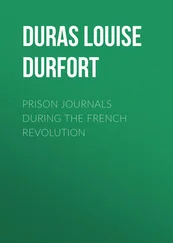Томас Карлейль - The French Revolution - A History
Здесь есть возможность читать онлайн «Томас Карлейль - The French Revolution - A History» — ознакомительный отрывок электронной книги совершенно бесплатно, а после прочтения отрывка купить полную версию. В некоторых случаях можно слушать аудио, скачать через торрент в формате fb2 и присутствует краткое содержание. Жанр: foreign_prose, История, foreign_edu, foreign_antique, на английском языке. Описание произведения, (предисловие) а так же отзывы посетителей доступны на портале библиотеки ЛибКат.
- Название:The French Revolution: A History
- Автор:
- Жанр:
- Год:неизвестен
- ISBN:нет данных
- Рейтинг книги:4 / 5. Голосов: 1
-
Избранное:Добавить в избранное
- Отзывы:
-
Ваша оценка:
- 80
- 1
- 2
- 3
- 4
- 5
The French Revolution: A History: краткое содержание, описание и аннотация
Предлагаем к чтению аннотацию, описание, краткое содержание или предисловие (зависит от того, что написал сам автор книги «The French Revolution: A History»). Если вы не нашли необходимую информацию о книге — напишите в комментариях, мы постараемся отыскать её.
The French Revolution: A History — читать онлайн ознакомительный отрывок
Ниже представлен текст книги, разбитый по страницам. Система сохранения места последней прочитанной страницы, позволяет с удобством читать онлайн бесплатно книгу «The French Revolution: A History», без необходимости каждый раз заново искать на чём Вы остановились. Поставьте закладку, и сможете в любой момент перейти на страницу, на которой закончили чтение.
Интервал:
Закладка:
Whereby at least we have again this historical curiosity: a human being in an original position; swimming passively, as on some boundless 'Mother of Dead Dogs,' towards issues which he partly saw. For Louis had withal a kind of insight in him. So, when a new Minister of Marine, or what else it might be, came announcing his new era, the Scarlet-woman would hear from the lips of Majesty at supper: "He laid out his ware like another; promised the beautifulest things in the world; not a thing of which will come: he does not know this region; he will see." Or again: "'Tis the twentieth time I hear all that; France will never get a Navy, I believe." How touching also was this: "If I were Lieutenant of Police, I would prohibit those Paris cabriolets." ( Journal de Madame de Hausset, p. 293, &c. )
Doomed mortal;—for is it not a doom to be Solecism incarnate! A new Roi Faineant, King Donothing; but with the strangest new Mayor of the Palace: no bow-legged Pepin now, but that same cloud-capt, fire-breathing Spectre of DEMOCRACY; incalculable, which is enveloping the world!—Was Louis no wickeder than this or the other private Donothing and Eatall; such as we often enough see, under the name of Man, and even Man of Pleasure, cumbering God's diligent Creation, for a time? Say, wretcheder! His Life-solecism was seen and felt of a whole scandalised world; him endless Oblivion cannot engulf, and swallow to endless depths,—not yet for a generation or two.
However, be this as it will, we remark, not without interest, that 'on the evening of the 4th,' Dame Dubarry issues from the sick-room, with perceptible 'trouble in her visage.' It is the fourth evening of May, year of Grace 1774. Such a whispering in the Oeil-de-Boeuf! Is he dying then? What can be said is, that Dubarry seems making up her packages; she sails weeping through her gilt boudoirs, as if taking leave. D'Aiguilon and Company are near their last card; nevertheless they will not yet throw up the game. But as for the sacramental controversy, it is as good as settled without being mentioned; Louis can send for his Abbe Moudon in the course of next night, be confessed by him, some say for the space of 'seventeen minutes,' and demand the sacraments of his own accord.
Nay, already, in the afternoon, behold is not this your Sorceress Dubarry with the handkerchief at her eyes, mounting D'Aiguillon's chariot; rolling off in his Duchess's consolatory arms? She is gone; and her place knows her no more. Vanish, false Sorceress; into Space! Needless to hover at neighbouring Ruel; for thy day is done. Shut are the royal palace-gates for evermore; hardly in coming years shalt thou, under cloud of night, descend once, in black domino, like a black night-bird, and disturb the fair Antoinette's music-party in the Park: all Birds of Paradise flying from thee, and musical windpipes growing mute. ( Campan, i. 197. ) Thou unclean, yet unmalignant, not unpitiable thing! What a course was thine: from that first trucklebed ( in Joan of Arc's country ) where thy mother bore thee, with tears, to an unnamed father: forward, through lowest subterranean depths, and over highest sunlit heights, of Harlotdom and Rascaldom—to the guillotine-axe, which shears away thy vainly whimpering head! Rest there uncursed; only buried and abolished: what else befitted thee?
Louis, meanwhile, is in considerable impatience for his sacraments; sends more than once to the window, to see whether they are not coming. Be of comfort, Louis, what comfort thou canst: they are under way, those sacraments. Towards six in the morning, they arrive. Cardinal Grand-Almoner Roche-Aymon is here, in pontificals, with his pyxes and his tools; he approaches the royal pillow; elevates his wafer; mutters or seems to mutter somewhat;—and so ( as the Abbe Georgel, in words that stick to one, expresses it ) has Louis 'made the amende honorable to God;' so does your Jesuit construe it.—"Wa, Wa," as the wild Clotaire groaned out, when life was departing, "what great God is this that pulls down the strength of the strongest kings!" ( Gregorius Turonensis, Histor. lib. iv. cap. 21. )
The amende honorable, what 'legal apology' you will, to God:—but not, if D'Aiguillon can help it, to man. Dubarry still hovers in his mansion at Ruel; and while there is life, there is hope. Grand-Almoner Roche-Aymon, accordingly ( for he seems to be in the secret ), has no sooner seen his pyxes and gear repacked, then he is stepping majestically forth again, as if the work were done! But King's Confessor Abbe Moudon starts forward; with anxious acidulent face, twitches him by the sleeve; whispers in his ear. Whereupon the poor Cardinal must turn round; and declare audibly; "That his Majesty repents of any subjects of scandal he may have given ( a pu donner ); and purposes, by the strength of Heaven assisting him, to avoid the like—for the future!" Words listened to by Richelieu with mastiff-face, growing blacker; answered to, aloud, 'with an epithet,'—which Besenval will not repeat. Old Richelieu, conqueror of Minorca, companion of Flying-Table orgies, perforator of bedroom walls, ( Besenval, i. 159-172. Genlis; Duc de Levis, &c. ) is thy day also done?
Alas, the Chapel organs may keep going; the Shrine of Sainte Genevieve be let down, and pulled up again,—without effect. In the evening the whole Court, with Dauphin and Dauphiness, assist at the Chapel: priests are hoarse with chanting their 'Prayers of Forty Hours;' and the heaving bellows blow. Almost frightful! For the very heaven blackens; battering rain-torrents dash, with thunder; almost drowning the organ's voice: and electric fire-flashes make the very flambeaux on the altar pale. So that the most, as we are told, retired, when it was over, with hurried steps, 'in a state of meditation ( recueillement ),' and said little or nothing. ( Weber, Memoires concernant Marie-Antoinette ( London, 1809 ), i. 22. )
So it has lasted for the better half of a fortnight; the Dubarry gone almost a week. Besenval says, all the world was getting impatient que cela finit; that poor Louis would have done with it. It is now the 10th of May 1774. He will soon have done now.
This tenth May day falls into the loathsome sick-bed; but dull, unnoticed there: for they that look out of the windows are quite darkened; the cistern-wheel moves discordant on its axis; Life, like a spent steed, is panting towards the goal. In their remote apartments, Dauphin and Dauphiness stand road-ready; all grooms and equerries booted and spurred: waiting for some signal to escape the house of pestilence. ( One grudges to interfere with the beautiful theatrical 'candle,' which Madame Campan ( i. 79 ) has lit on this occasion, and blown out at the moment of death. What candles might be lit or blown out, in so large an Establishment as that of Versailles, no man at such distance would like to affirm: at the same time, as it was two o'clock in a May Afternoon, and these royal Stables must have been some five or six hundred yards from the royal sick-room, the 'candle' does threaten to go out in spite of us. It remains burning indeed—in her fantasy; throwing light on much in those Memoires of hers. ) And, hark! across the Oeil-de-Boeuf, what sound is that; sound 'terrible and absolutely like thunder'? It is the rush of the whole Court, rushing as in wager, to salute the new Sovereigns: Hail to your Majesties! The Dauphin and Dauphiness are King and Queen! Over-powered with many emotions, they two fall on their knees together, and, with streaming tears, exclaim, "O God, guide us, protect us; we are too young to reign!"—Too young indeed.
Thus, in any case, 'with a sound absolutely like thunder,' has the Horologe of Time struck, and an old Era passed away. The Louis that was, lies forsaken, a mass of abhorred clay; abandoned 'to some poor persons, and priests of the Chapelle Ardente,'—who make haste to put him 'in two lead coffins, pouring in abundant spirits of wine.' The new Louis with his Court is rolling towards Choisy, through the summer afternoon: the royal tears still flow; but a word mispronounced by Monseigneur d'Artois sets them all laughing, and they weep no more. Light mortals, how ye walk your light life-minuet, over bottomless abysses, divided from you by a film!
Читать дальшеИнтервал:
Закладка:
Похожие книги на «The French Revolution: A History»
Представляем Вашему вниманию похожие книги на «The French Revolution: A History» списком для выбора. Мы отобрали схожую по названию и смыслу литературу в надежде предоставить читателям больше вариантов отыскать новые, интересные, ещё непрочитанные произведения.
Обсуждение, отзывы о книге «The French Revolution: A History» и просто собственные мнения читателей. Оставьте ваши комментарии, напишите, что Вы думаете о произведении, его смысле или главных героях. Укажите что конкретно понравилось, а что нет, и почему Вы так считаете.












